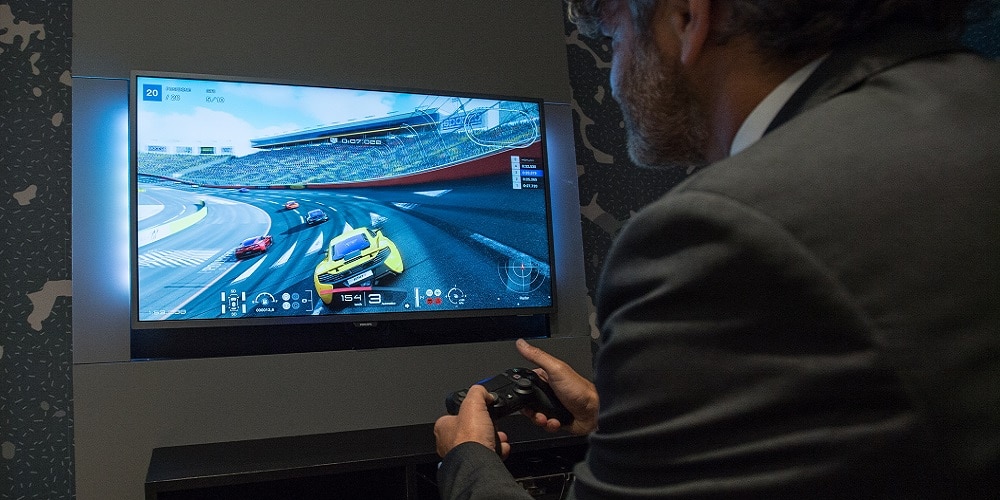The discussion on the "Regulation of video game competitions" bill presented by Senator Marti (Lega) and others began yesterday in the Senate Culture Committee. During the session, the speaker Paganella (Lega) illustrated the provisions of the bill and the content of the thirteen articles of which the provision is made up.
Below is the full report:
The rapporteur PAGANELLA (LSP-PSd'Az) illustrates the provisions of the bill in title, specifying that it is aimed at regulating video game competitions, starting from the assumption that technology and, in particular, fast broadband and streaming , allow users of video games not to limit themselves to individual use of the same, but to compete in real competitions, races or tournaments, sometimes at an international level. He notes that the sector, now characterized by a plurality of players and significant investments, requires regulation in which there is adequate protection for the various protagonists of the competitions: on the one hand, the players, and in particular minors; on the other, inventors, for the protection of intellectual work and the promotion of the creative and cultural dimension.
He then moves on to illustrate the content of the thirteen articles that make up the provision in the title. Highlights that, pursuant to Article 1, the Republic promotes and supports video games as a means of artistic expression, cultural education and social communication and that the regulation of video game competitions, dictated in compliance with the principles of economic freedom, protection of consumer and minor protection, has as its object the creation of equal conditions for Italian operators in the national, European and global markets. Furthermore, the creative and cultural value of videogames as an intellectual work protected by copyright is recognized and promoted and it is provided that commercial videogame businesses that pursue these values can benefit from tax incentive measures and support from of the European Union, when they constitute opportunities for economic and employment growth, as well as for the promotion of the research and innovation sectors.
Article 2 contains the definitions relevant to the provision, starting with those of video games (understood as complex intellectual works endowed with creativity and protectable both as a whole and in their individual components), video game activities and competitions.
Article 3 distinguishes video game competitions into in-person competitions, remote competitions, competitions in Italy and transnational competitions.
The rapporteur then focuses on article 4, which introduces rules to safeguard minors. Specifically, it provides that participation in video game competitions is not permitted to minors under the age of twelve and that minors under the age of fourteen can only participate in competitions that do not provide cash prizes or other benefits, with the prior authorization of their parents or guardian. parental authority. As for minors who have reached the age of fourteen or sixteen, they can participate in video game competitions which provide cash prizes or other benefits for a maximum value, respectively, of 2.500 euros and 5.000 euros, subject to the authorization of their parents or
exercises parental authority. In any case, participation in video game competitions is permitted to minors under the age of sixteen with the prior authorization of the holder of parental authority, who must be informed of the conditions of participation, the prizes up for grabs in the competition and the video games used to carry out the competition itself, as well as their classification.
Article 5 places the obligation on those who intend to organize videogame competitions in Italy, even if connected to each other, in person or remotely, which involve the payment of prizes worth more than 2.500 euros, to register on the electronic platform held by the Ministry of Culture.
Article 6 establishes that the organizers of video game competitions which involve the payment of prizes worth more than 2.500 euros are required to communicate the organization of the competition with a specific declaration, to be deposited on the aforementioned electronic platform of the Ministry of Culture. .
Article 7 provides that the rules regarding withholding tax on prizes and winnings referred to in Article 30, second paragraph, of Presidential Decree no. 29 September 1973, apply to prizes in video game competitions. 600, with a rate of 20 percent.
Article 8 regulates the working classification of players and videogame operators, delegating the regulation of the matter to guidelines of the Minister of Culture, in agreement with the Minister of Labor and Social Policies, following the activity of a table in which In addition to the competent ministries, video game producers, organizers of video game competitions, team organizations and associations most representative of players and operators in the sector participate.
Article 9 establishes that the provisions of Articles 4, 5, 6, 7, 8, 10 and 12 do not apply to remote transnational video game competitions.
Article 10 provides that in video game competitions only betting on the victory of the participants is permitted and players who have participated in at least two video game competitions are prohibited from betting, even through third parties.
Article 11 provides that video game competitions are included among the cultural and sporting events for which it is possible to obtain a temporary visa for entry into Italy and the Schengen area for the purpose of participating in sporting or cultural events, for a stay of a maximum duration of ninety days every one hundred and eighty days.
Article 12 provides for sanctions for failure to comply with the obligations contained in the bill.
Finally, he mentions article 13, containing the final provisions. Among them, it mentions the provision on the basis of which video game competitions carried out in compliance with the provisions of the bill are excluded from the application of the regulations on gaming activities (referred to in Legislative Decree 14 April 1948, no. 496) and of the regulations on competitions and prize operations (referred to in the regulation referred to in the decree of the President of the Republic of 26 October 2001, n. 430).











